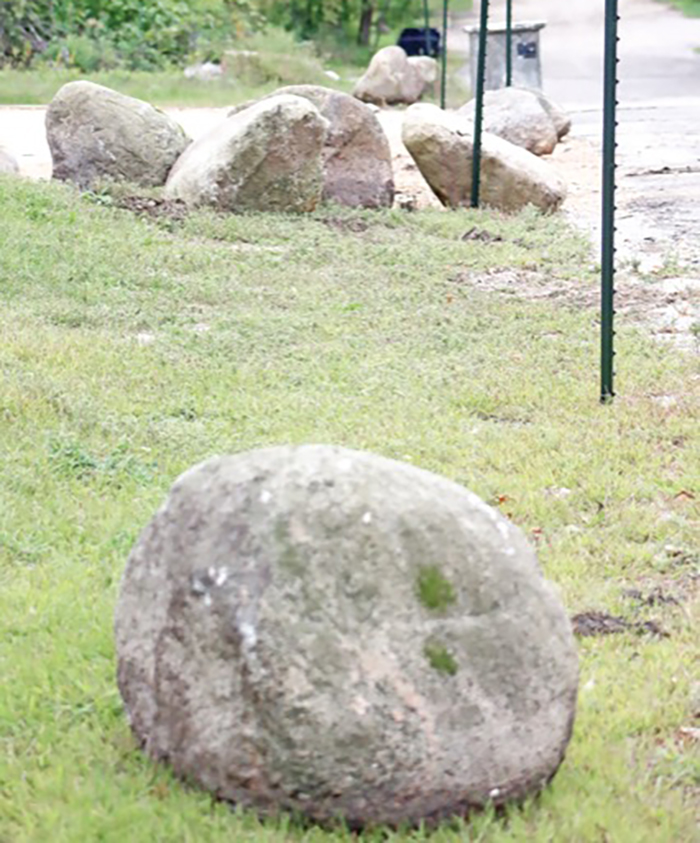Township officials concerned with clear right-of-way as snowplow season nears
News | Published on September 30, 2025 at 3:43pm EDT | Author: frazeevergas
0
Boulders placed in a township right-of-way not only interfere with snowplow blades—they are potentially dangerous for snowmobile and all terrain vehicle riders.
By Louis Hoglund
Pelican Rapids Press
Plowing snow around winding, narrow lakeshore roads is a delicate township chore—while maneuvering the heaviest and clumsiest of equipment.
Making it even more challenging: Boat trailers, pontoons, vehicles—and even boulders—parked within the township’s jurisdiction.
That’s why township officers and road maintenance crews are adamant about keeping stuff off the right-of-way.
Immense boulders appeared recently, lining a residential street on the southwest side of Pelican Lake—Broadwater Beach area.
Boulders not only interfere with snowplow blades—they are potentially dangerous.
“If you put obstructions in the township right-of-way, and somebody has an accident—you are liable,” said Scambler Township officer and road supervisor Phil Rotz. “If you store a pontoon on the right-of-way, you are liable…And if the township lets you keep (obstructions) there, then we take on the liability.”
Imagine a snowmobiler in a ditch, colliding with an invisible, snow-shrouded boulder—the township would be liable for the injury, said Rotz.
Every township, especially those with difficult lake area roads, encounters issues of this sort.
“It’s one of those things where people have no idea what the boundary is…what they can and can’t do,” said Scambler board chairperson Nancy Hebert.
The row of boulders generated at least a half-dozen calls from concerned neighbors, said Randy Arntson, who, along with his son Jordan, is the road crew for Scambler and Dunn Townships, which surround Pelican Lake and all the quirky roads and streets around the waterways.
“I’ve never seen a situation like this in 20 years of plowing around the lakes,” said Arntson.
Not only did township officers Rotz and Bob Seifert inspect the scene, but an Otter Tail County deputy was reportedly dispatched to the scene within a few hours.
That’s how serious road obstructions are taken, noted Arntson.
“I don’t know exactly how the statute reads, but a property owner would be given a deadline, and if it wasn’t met—charges would be brought,” said Arntson. He recalled a case where a property owner deposited a pile of stones and large rock within township jurisdiction. The deputy gave the property owner one hour to remove them. The same applies to boats and trailers.
Another growing problem is sprinkler heads. Scambler, and no doubt other area townships, have clipped off sprinkler heads because lot owners are installing them within the plowing zone.
“We’ve had situations where the plow blades shaved off sprinkler heads—because they were installed a foot off road shoulder,” said Rotz. In fact, one property owner expected the township to pay for the sprinkler repair.
“Townships are not trying to be rude…but if you have property within the township right-of-way; and it gets damaged when we do maintenance…sorry. That’s your responsibility.”
Lake roads are not easy to maintain, in general, noted Rotz. Especially roads established before modern standards, widths, and ditch and right-of-way requirements.
Obstructions are an issue that the township, as well as the county and state, warn property owners about, constantly.
“Once you are on your own property, I don’t care how big a boulder you put in your yard,” said Rotz, “…as long as it’s not on township right-of-way.”

